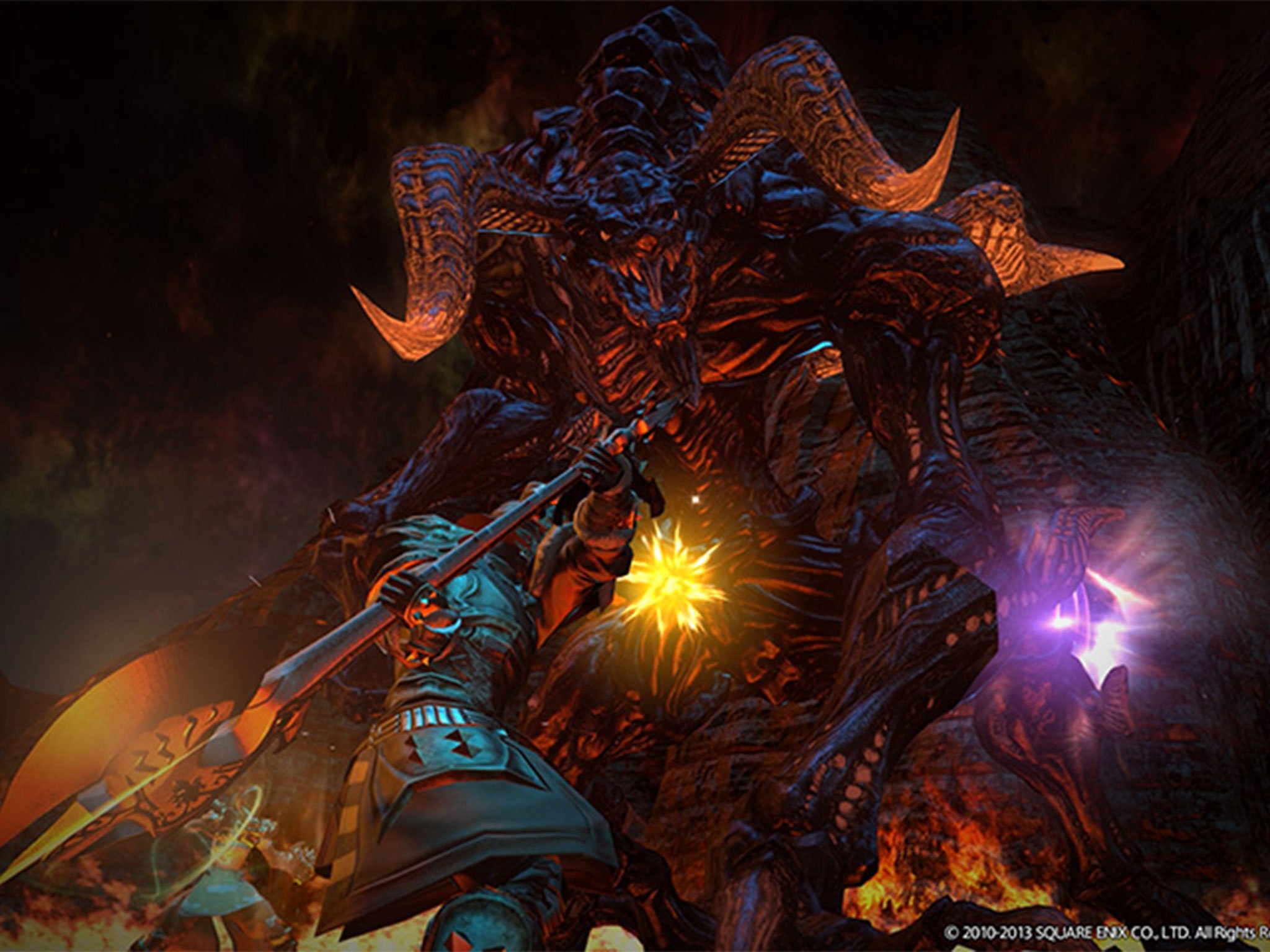What Final Fantasy XIV's aborted Mac launch says about Mac gaming

iMore offers spot-on advice and guidance from our team of experts, with decades of Apple device experience to lean on. Learn more with iMore!
You are now subscribed
Your newsletter sign-up was successful
Square Enix's release of Final Fantasy XIV for the Macintosh seems to have been blunder after misstep after blunder. It's becoming a textbook example of how not to release a game for the Mac. There's plenty of blame to go around here, and not all of it is at Square Enix's feet.
Square Enix first made waves earlier this year when they announced that Final Fantasy XIV would come to the Mac. That alone was remarkable because the Mac is not a platform Square Enix has demonstrated an interest in. Then the company made waves of an entirely different kind in late June by releasing it only to have Mac users screaming at them about performance and stability problems.
The problem, ultimately, is that people who are buying Macs are, by and large, not gamers.
The company responded over the weekend by pulling the Mac version of Final Fantasy XIV temporarily. The game's producer and direct, Naoki Yoshida, accepted responsibility for the problem in a lengthy explanation posted to the Final Fantasy XIV forums.
Yoshida lays the problem at the feet of changing system requirements late in development. He said that he plans to keep the Mac version from being sold until the company can better articulate Macs system requirements. They're offering refunds to those Mac users who don't want to wait.
There's a lot more to this than just a case of mistaken system requirements, though. Yoshida went pretty far down the rabbit hole to explain.
Among the problems Yoshida cited is Final Fantasy XIV's reliance on Cider. It's a translation technology developed by a Canadian outfit called TransGaming, which recently sold Cider to Nvidia. Cider has been used for years to make Mac game ports.
Square Enix knew from the start that not a lot of Mac users were going to play Final Fantasy XIV compared to their Windows counterparts, so they wanted to do the Mac version's development on the cheap. That's why they did a Cider port, according to Yoshida. They made it someone else's problem in the process.
iMore offers spot-on advice and guidance from our team of experts, with decades of Apple device experience to lean on. Learn more with iMore!
Mac gamers often look down their nose at Cider-based games. They have the reputation for not running as fast as a game that's been programmed with native support for OS X's graphics drivers. Yoshida confirmed this but went further, throwing under the bus OpenGL, the graphics technology employed by OS X:
If FFXIV were to be developed in native OpenGL for Mac OS, it is expected that there would be a performance gap of approximately 30% compared the DirectX version.
Thirty percent is a big nut, and it's a pretty good indication of just how bad things are on the Mac today when it comes to performance parity with Windows games. And mind you, Yoshida's talking about if FF XIV was remade as an OS X native game. The actual performance delta between Mac and Windows currently is much bigger, and that's why Square Enix pulled the game for sale right now.
Yoshida also noted that Mac graphics performance varies widely depending on the model, and low-end Macs wouldn't be able to run the game nearly as well as low-end PCs would. That's another nagging problem: Apple specs its machines for what it wants them to do, not for gamers or performance enthusiasts.
You really can't argue with Apple's success over the years at building great hardware that consumers will buy in droves. Game companies like Aspyr and Feral have managed to eke out a niche for themselves by making Mac games. Blizzard supports Mac gaming with its efforts like the recently released Heroes of the Storm. But Mac game development isn't growing proportionally to Apple's increased market share.
The problem, ultimately, is that people who are buying Macs are, by and large, not gamers. And never will be gamers. Mac users who are gamers are left with a couple of choices: Buy a Windows PC or console to play games on, or install Windows in Boot Camp and run games there. Either way, running games in OS X is only a solution for a small percentage of players.
There is hope: Apple is making big changes in OS X with the upcoming release of El Capitan, OS X 10.11. "Metal" in 10.11 is a fundamental change to make graphics draw much faster than they do now.
I'd rather see Square Enix not waste Mac users' time bringing a half-assed product to the platform.
Yoshida mentioned Metal, although he inaccurately paired it with the "adoption of DirectX 11 for Mac," which is something that is not, to the best of my knowledge, happening, from Microsoft or Apple or anyone else.
If Metal's promise of much faster draw calls fixes a key performance area for FF XIV, maybe the right solution is to wait until 10.11 is released. That won't fix the hardware spec issues Yoshida mentioned. That won't change Square Enix's decision to use crappy middleware and to make it someone else's problem in the process, rather than adopting good OS X development processes from the start.
Good Mac game development can be done. Ask Aspyr, ask Feral, ask Telltale Games, ask Blizzard. These are all companies whose Mac game products don't suck. These are also companies that have staff who know what they're doing when it comes to the Mac.
Speaking frankly, I'd rather see a company like Square Enix not waste its time and Mac users' time bringing a half-assed product to the platform. It's bad for business. Sometimes it's worse to have a bad product than it is to have no product at all.

